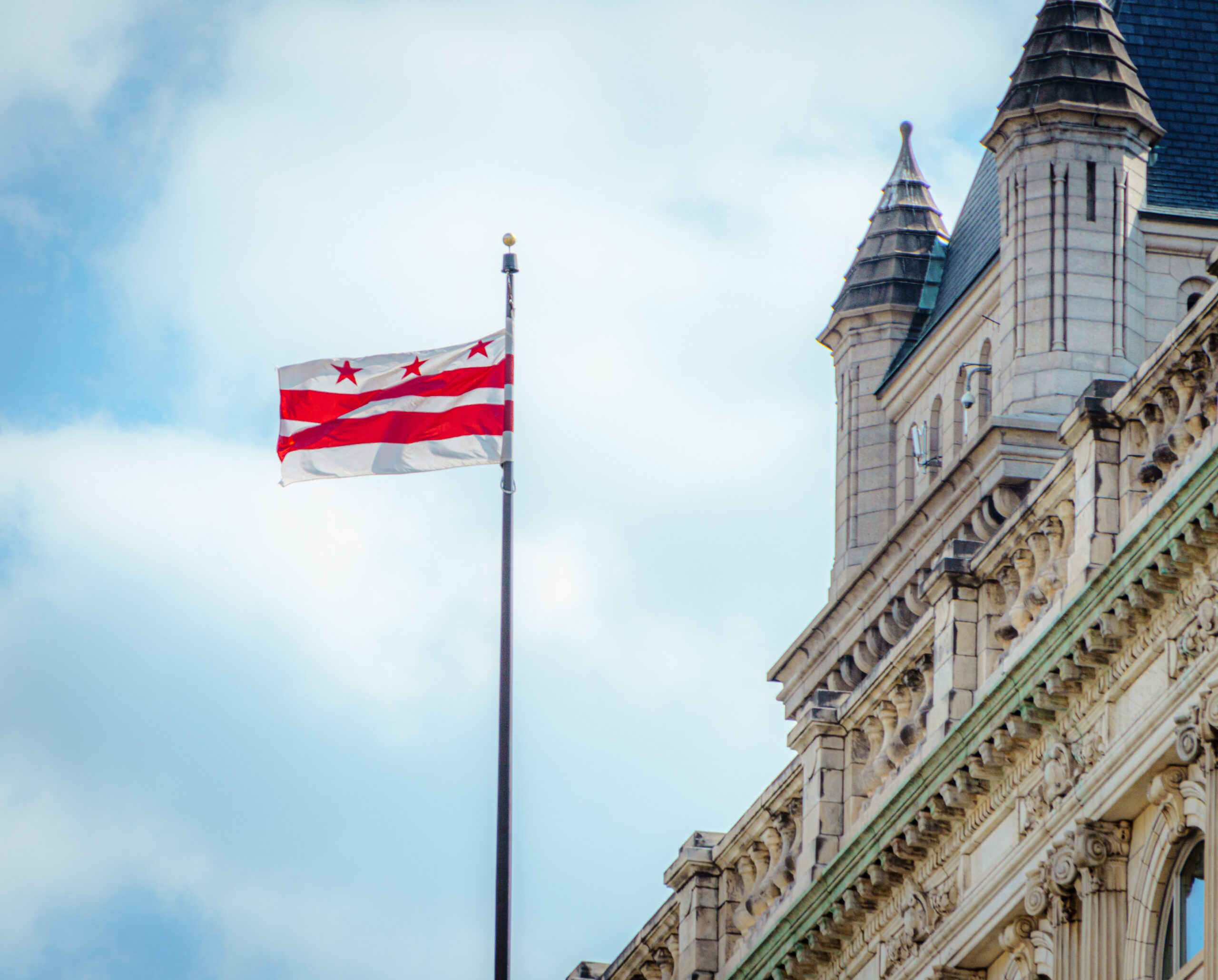On June 20, 2024, Director of Research and Policy Emilia Calma testified before the DC Council on Bill 25-0619, “Clean Hands Certification Economic Expansion and Revitalization Amendment Act of 2023.” Her testimony focused on raising the clean hands threshold to improve economic opportunity in the District. Read the full testimony below or download a PDF copy.
Access to economic opportunity can change the course of a person’s life. Yet currently in D.C., according to one study, up to 10 percent of the population could be prevented from obtaining a business license, permit, or grant, because they owe the D.C. government as little as $100.[1] Business licenses to be a landlord, a food vendor, a barber, a cosmetologist, a nursing assistant and for many more occupations require a certificate of “clean hands” showing that the applicant does not owe $100 or more to the District. This requirement presents a barrier to entrepreneurship and opportunity to join the workforce, particularly for residents of limited means who could benefit the most from economic opportunity.
Raising the threshold for clean hands from $100 to $2,500, the Clean Hands Certification Economic Expansion and Revitalization Amendment Act of 2023 increases opportunities for residents and increases racial equity. Fixed fines and fees disproportionately harm people of color and low-income people as systemic wealth and income inequalities make it more difficult for these groups of people to pay fines.[2] Increasing the clean hands threshold thus removes a punitive barrier for those wishing to enter the workforce, increasing opportunities to build wealth and earn income. While the proposed clean hands debt threshold increase in the Budget Support Act from $100 to $1000 is a step in the right direction, the $2,500 threshold proposed in B25-0619 would be better for the future of residents, businesses, and the city as a whole.
In addition to raising the debt threshold to $2,500, the D.C. Policy Center recommends the following changes to clean hands legislation:
- Clean hands should only be applied to overdue debts. Currently, one must only be in debt for one day to prompt a denial of clean hands. Virginia and Maryland require debts to be over 90 days overdue and 120 days overdue, respectively, to trigger a business license denial.[3] This makes D.C. less competitive in its ability to attract workers and companies, reducing economic development in the city.
- If an individual or business receives a notice of non-compliance for clean hands, it should state the reason and agency to which money is owed. Currently, determining the reason for a notice of non-compliance is time consuming as there are a variety of sources from which money could be owed including parking and speeding tickets, past due utility bills, fines to District agencies, overdue taxes, and late tax filings. Including more information would make it easier for business owners and promote repayment of debts to the District.
- Council should consider limiting the fines and fees included in clean hands certification. When clean hands was originally passed, its purpose was to deter littering, illegal dumping, and delinquent tax filings. Moving and parking infractions and past due utilities were only added in 2001 when D.C. trying to raise additional funds.[4] Virginia and Maryland, in contrast, limit qualifying debts to unpaid taxes, unfiled returns, and unpaid child support. The Council should consider what kinds of debts are most relevant to business licensure in the District and consider limiting the kinds of debt that are considered for clean hands certification.
- The Office of the Chief Financial Officer should release data on the use and incidence of clean hands so we can better understand the tradeoff between clean hands as a collection tool and clean hands as a barrier to opportunity. Additionally, data on program administration can greatly help improve the program’s implementation.
Thank you for the opportunity to testify and I welcome any questions you may have.
[1] Driving DC to Opportunity: Wealth Should Not Determine Who Gets to Keep Their Driver’s License. Tzedek DC. 2021. https://www.tzedekdc.org/news-1/2021/4/26/new-report-finds-dcs-clean-hands-law-provision-on-drivers-licenses-punishes-residents-for-poverty-and-undermines-racial-equity-in-the-district
[2] Zickuhr, K. Applying a racial equity lens to fines and fees in the District of Columbia. 2019. D.C. Policy Center. https://www.dcpolicycenter.org/publications/racial-equity-fines-fees/
[3] Md. Code, Bus. Occupations and Professions, § 1-204; Va. Code § 63.2-1937, cited in the written testimony of Chad Reese, Institute for Justice.
[4] Driving DC to Opportunity: Wealth Should Not Determine Who Gets to Keep Their Driver’s License. Tzedek DC. 2021. https://www.tzedekdc.org/news-1/2021/4/26/new-report-finds-dcs-clean-hands-law-provision-on-drivers-licenses-punishes-residents-for-poverty-and-undermines-racial-equity-in-the-district
